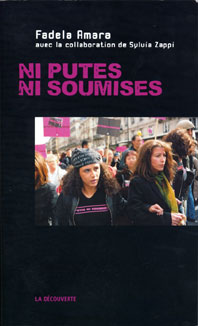
Wednesday, September 15, 2004 11:59 PM
11:59 PM: The Last Minute
For the benefit of Grace (Paley, Enormous Changes at the Last Minute), here are the September 15 lottery numbers for Pennsylvania, the State of Grace (Kelly):

Midday: 053 Evening: 373.
For the significance of the evening number, 373, see Directions Out and Outside the World (both of 4/26/04). In both of these entries, and others to which they are linked, the number 373 signifies eternity.
The two most obvious interpretations of the midday number, 53, are as follows:
"Time and chance
happeneth to them all."
Ecclesiastes 9-11
Wednesday, September 15, 2004 7:11 PM
High Holy
Hexagram
7:11:20 PM
For a poetic interpretation
of this symbol, see
Hexagram 20,
Contemplation (View).
For a religious interpretation
suited to the High Holy Days,
see the film
"The truth is that man's capacity for symbol-mongering in general and language in particular is so intimately part and parcel of his being human, of his perceiving and knowing, of his very consciousness itself, that it is all but impossible for him to focus on the magic prism through which he sees everything else."
-- Walker Percy, The Message in the Bottle
Wednesday, September 15, 2004 4:00 PM
Shakespeare
for Rosh Hashanah
From "Walter Benjamin,
1892-1940,"
by Hannah Arendt
(Introduction to
Benjamin's Illuminations.):
THE PEARL DIVER
Full fathom five thy father lies,
Of his bones are coral made,
Those are pearls that were his eyes.
Nothing of him that doth fade
But doth suffer a sea-change
Into something rich and strange.
-- THE TEMPEST, I, 2
"... we are dealing here with something which may not be unique but is certainly extremely rare: the gift of thinking poetically.
And this thinking, fed by the present, works with the 'thought fragments' it can wrest from the past and gather about itself. Like a pearl diver who descends to the bottom of the sea, not to excavate the bottom and bring it to light but to pry loose the rich and the strange, the pearls and the coral in the depths, and to carry them to the surface, this thinking delves into the depths of the past-- but not in order to resuscitate it the way it was and to contribute to the renewal of extinct ages. What guides this thinking is the conviction that although the living is subject to the ruin of the time, the process of decay is at the same time a process of crystallization, that in the depth of the sea, into which sinks and is dissolved what once was alive, some things 'suffer a sea-change' and survive in new crystallized forms and shapes that remain immune to the elements, as though they waited only for the pearl diver who one day will come down to them and bring them up into the world of the living-- as 'thought fragments,' as something 'rich and strange,' and perhaps even as everlasting Urphänomene."
For examples of everlasting Urphänomene, see Translation Plane for Rosh Hashanah and The Square Wheel; recall that on this date
"In 1935, the Nuremberg Laws deprived German Jews of their citizenship and made the swastika the official symbol of Nazi Germany."
-- Today in History, the Miami Herald
(For some further reflections on square wheels, see Triumph of the Cross.)
Wednesday, September 15, 2004 2:56 PM
On Translation
From Illuminations, by Walter Benjamin, translated by Harry Zohn:
"If there is such a thing as a language of truth, the tensionless and even silent depository of the ultimate truth which all thought strives for, then this language of truth is-- the true language. And this very language, whose divination and description is the only perfection a philosopher can hope for, is concealed in concentrated fashion in translations. There is no muse of philosophy, nor is there one of translation. But despite the claims of sentimental artists, these two are not banausic. For there is a philosophical genius that is characterized by a yearning for that language which manifests itself in translations: 'Les langues imparfaites en cela que plusieurs, manque la suprême: penser étant écrire sans accessoires, ni chuchotement mais tacite encore l'immortelle parole, la diversité, sur terre, des idiomes empêche personne de proférer les mots qui, sinon se trouveraient, par une frappe unique, elle-même matériellement la vérité.'* If what Mallarmé evokes here is fully fathomable to a philosopher, translation, with its rudiments of such a language, is midway between poetry and doctrine. Its products are less sharply defined, but it leaves no less of a mark on history."
* "The imperfection of languages consists in their plurality, the supreme one is lacking: thinking is writing without accessories or even whispering, the immortal word still remains silent; the diversity of idioms on earth prevents everybody from uttering the words which otherwise, at one single stroke, would materialize as truth.'
-- Stéphane Mallarmé / Crise de vers
(The Benjamin is from a copy of Illuminations I purchased exactly 12 years ago, on Sept. 15, 1992.)
Wednesday, September 15, 2004 11:30 AM
Translation Plane
for Rosh Hashanah

Figure A
|
From the website of Priv.-Doz. Dr. H. Klein, The Translation Plane of Order Nine There are exactly four projective planes of order nine, and one of these planes is a non-Desarguesian translation plane. Theorem. Up to isomorphism, there exists exactly one non-Desarguesian translation plane of order 9. This translation plane is defined by a spreadset in a 2-dimensional vector space over the field GF(3), consisting of the following matrices.   As it turns out, the coordinatizing quasifield is a nearfield. Moreover the non-Desarguesian translation plane of order 9 has Lenz-Barlotti type |
Two versions of the defining spreadset for this plane are shown in
Figure A. In the left part of Fig. A, the matrices of Dr. Klein
are altered by the use of "2" instead of
Tuesday, September 14, 2004 3:00 PM
The Square Wheel
Harmonic analysis may be based either on the circular (i.e.,
trigonometric) functions or on the square (i. e., Walsh)
functions. George Mackey's masterly historical survey
showed that the discovery of Fourier analysis, based on the circle, was
of comparable importance (within mathematics) to the discovery (within
general human history) of the wheel. Harmonic analysis based on
square
For some observations of Stephen Wolfram on square-wheel analysis, see pp. 573 ff. in Wolfram's magnum opus, A New Kind of Science (Wolfram Media, May 14, 2002). Wolfram's illustration of this topic is closely related, as it happens, to a note on the symmetry of finite-geometry hyperplanes that I wrote in 1986. A web page pointing out this same symmetry in Walsh functions was archived on Oct. 30, 2001.
That web page is significant (as later versions point out) partly
because it shows that just as the phrase "the circular functions" is
applied to the trigonometric functions, the phrase "the square functions" might well be applied to Walsh
"While the reader may draw many a moral from our tale, I hope that
the story is of interest for its own sake. Moreover, I hope that
it may inspire others, participants or observers, to preserve the true
and complete record of our mathematical times."
-- From Error-Correcting Codes
Through Sphere Packings
To Simple Groups,
by Thomas M. Thompson,
Mathematical Association of America, 1983
Sunday, September 12, 2004 1:13 PM
The Turning
A way a lone
a last a loved
a long the
Click on pictures
for further details.
"For the essence and the end
Of his labor is beauty...
one beauty, the rhythm of that Wheel"
Robinson Jeffers,
"Point Pinos and Point Lobos"
Sunday, September 12, 2004 12:00 PM
Dark Lady
"Each time we come closer to Shakespeare's life, we escape from the aridity of formal criticism or the cheap generalities of social history into a recognizable world of real experience. When A. L. Rowse insists that Emilia Bassano Lanier, the tempestuous, adulterous, musical, poetic wife of a court musician, was the original 'Dark Lady' of the Sonnets, we can buy it or not, as we please. But the very existence of a woman like Emilia demonstrates that the clichéd images of Elizabethan women, as subservient wives or unruly whores, are too grossly tuned to capture the reality of Shakespeare's world. Whether she is the Dark Lady or not, Emilia is a dark lady. Good biographical criticism dissolves determinisms, and replaces them not with gossipy puzzle-solution certainties but with glimpses of life as it is lived, and art as it is made."
-- Adam Gopnik, The New Yorker, issue dated Sept. 13, 2004

"En librairie depuis le 12 septembre 2003, ce livre correspond au désir du mouvement 'ni putes ni soumises' de briser l'omerta et de poursuivre les débats engagés depuis la marche des femmes. À travers ce récit, ce sont les voix de milliers de jeunes femmes qui se font entendre, exprimant leurs interrogations et leur révolte."
On Samira Bellil, who died on Sept. 3:
"Bellil was considered the 'godmother' of the womens' rights group 'Ni Putes Ni Soumises' (Neither Whores Nor Submissive.)"
-- Hendersonville (NC) Times-News
Saturday, September 11, 2004 12:00 PM

"Now is the time for turning. The leaves are beginning to turn from green to red to orange. The birds are beginning to turn and are heading once more toward the south. The animals are beginning to turn to storing their food for the winter. For leaves, birds and animals, turning comes instinctively. But for us, turning does not come so easily."
-- President Clinton,
Prayer Breakfast,
September 11, 1998
Friday, September 10, 2004 1:13 PM
For Samira Bellil,

who died in Paris on
Friday, Sept. 3, 2004...
From the link at
Symmetry and Change
in the Dreamtime,
Part 8, Friday,
Sept. 3, 2004,
Noon...
Three songs from Sept. 10
in various preceding years--
"Good morning little schoolgirl
Good morning little schoolgirl
Can I come home with
Can I come home with you"
-- Rod Stewart, Sept. 10, 1964
"Tell your mamma, girl, I can't stay long
We got things we gotta catch up on
Mmmm, you know
You know what I'm sayin' "
-- Neil Diamond, Sept. 10, 1966
"A time of war, a time of peace
A time of love, a time of hate
A time you may embrace
A time to refrain from embracing"
-- The Byrds, Sept. 10, 1965
Further verses from the Byrds
seem appropriate on this, the day
of Samira Bellil's funeral:
To everything, turn, turn, turn,
there is a season, turn, turn, turn...
"It's not even called rape. They call it
a tournante, or pass-round.
The banality is deliberate:
a joint, a girl - same difference."
... and a time to every purpose
under heaven.
"... The kind of school where teacher
Fabrice Genestal kept hearing
the word "tournante" and didn't click
what it meant, till he and Sillam
sat the kids down in after-school
workshops, and got talking."
-- Metropolitan Police Service, London
Monday, September 6, 2004 2:29 PM
An Invariant Feast
In memory of philosopher Robert D. Cumming, who took part in the liberation of Paris on the Feast of St. Louis, 1944, and who died on that same feast day, August 25, in 2004:
Sunday, September 5, 2004 5:29 PM
A Story of Sorts
Sometimes one's journal entries seem to be telling a story...
This was the case for Log24 entries of Tuesday through Friday last week. Unfortunately, the story they told is about as coherent as Finnegans Wake.
Anyone interested can find the story, put into chronological order and prefaced with a summary, at
Symmetry and Change
in the Dreamtime.
Friday, September 3, 2004 3:17 PM
Ite, Missa Est
"A pretty girl --
is like a melody ---- !"
For details, see
A Mass for Lucero.
Friday, September 3, 2004 1:13 PM
Symmetry and Change, Part 9...
"I sit now in a little room off the bar at four-thirty in the morning drinking ochas and then mescal and writing this on some Bella Vista notepaper I filched the other night.... But this is worst of all, to feel your soul dying. I wonder if it is because to-night my soul has really died that I feel at the moment something like peace. Or is it because right through hell there is a path, as Blake well knew, and though I may not take it, sometimes lately in dreams I have been able to see it? ...And this is how I sometimes think of myself, as a great explorer who has discovered some extraordinary land from which he can never return to give his knowledge to the world: but the name of this land is hell. It is not Mexico of course but in the heart."
-- Malcolm Lowry, Under the Volcano
Friday, September 3, 2004 12:00 PM
Symmetry and Change, Part 8...
Friday, September 3, 2004 10:01 AM
Symmetry and Change, Part 7...
Another September Morn:
10:01:56 AM ET
Hexagram 56:
The Wanderer

Fire on the mountain,
Run boys run...
Devil's in the House of
The Rising Sun!
Friday, September 3, 2004 12:00 AM
Symmetry and Change, Part 6...
Cinderella's Slipper:
12:00:54 AM ET
Hexagram 54:
The Marrying Maiden

Thursday, September 2, 2004 7:00 PM
Symmetry and Change, Part 5...
Whale Road
"... the plot is different but the monsters, names, and manner of speaking will ring a bell."
-- Frank Pinto, Jr., review of Seamus Heaney's translation of Beowulf
Other recommended reading, found during a search for the implications of today's previous entry, "Hexagram 42":
This excellent meditation
on symmetry and change
comes from a site whose
home page
has the following image:
Thursday, September 2, 2004 11:11 AM
Symmetry and Change, Part 4...
Hexagram 42
Time of this entry-- 11:11:42 AM ET.
"This time resembles that of
the marriage of heaven and earth"
|
|
|

"What it all boiled down to really was everybody giving everybody else a hard time for no good reason whatever... You just couldn't march to your own music. Nowadays, you couldn't even hear it... It was lost, the music which each person had inside himself, and which put him in step with things as they should be."
-- The Grifters, Ch. 10, 1963, by
James Myers Thompson
"The Old Man's still an artist
with a Thompson."
-- Terry in "Miller's Crossing"
For some of "the music which
each person had inside,"
click on the picture
with the Thompson.
It may be that Kylie is,
in her own way, an artist...
with a 357:
(Hits counter at
The Quality of Diamond
as of 11:05 AM Sept. 2, 2004)
For more on
"the marriage of heaven and earth,"
see
Plato, Pegasus, and the Evening Star.
Wednesday, September 1, 2004 12:07 PM
Symmetry and Change, Part 3...

"Congratulations to Clare Lawler, who participated very successfully in the recently held Secondary Schools Judo Championships in Wellington."
For an explanation of this entry's title, see the previous two entries and
Oxford Word
(Log24, July 10, 2004)
Wednesday, September 1, 2004 9:00 AM
Symmetry and Change, Part 2...
Words and Images
|
"Oh, my Lolita. I have only words "This is the best toy train set "As the quotes above by Nabokov and Welles suggest, we need to be able to account for the specific functions available to narrative in each medium, for the specific elements that empirical creators will 'play with' in crafting their narratives." |
For
James Whale
and
William French Anderson --
Words
In the Spirit of
Dave Barry's Book of Bad Songs:
Stay for just a while...
Stay, and let me look at you.
It’s been so long, I hardly knew you.
Standing in the door...
Stay with me a while.
I only want to talk to you.
We’ve traveled halfway ’round the world
To find ourselves again.
September morn...
We danced until the night
became a brand new day,
Two lovers playing scenes
from some romantic play.
September morning still can
make me feel this way.
Look at what you’ve done...
Why, you’ve become a grown-up girl...
-- Neil Diamond
Images
In the Spirit of
September Morn:

The Last Day of Summer:
Photographs by Jock Sturges
"In 1990, the FBI entered Sturges's studio and seized his work, claiming violation of child pornography laws."
Related material:
and
Log24 entries of
Aug. 15, 2004.
Those interested in the political implications of Diamond's songs may enjoy Neil Performs at Kerry Fundraiser.
I personally enjoyed this site's description of Billy Crystal's
remarks, which included "a joke about former President Clinton's
forthcoming children's
"Puff, puff, woo, woo, off we go!"